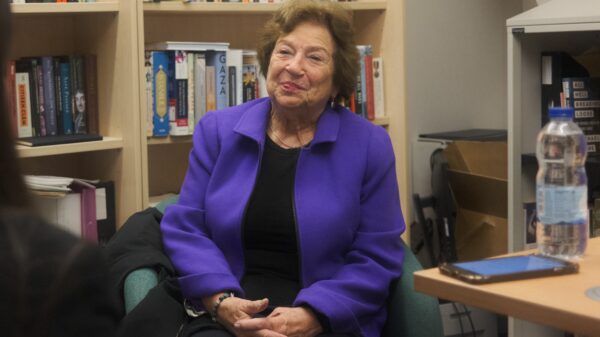Comment editor Fintan Hogan speaks to a Hungarian PhD candidate conducting fieldwork in his home country. This is part of a prospective ‘King’s Votes’ series on global elections and their importance to King’s College London (KCL) students and staff.
On Sunday April 3, Hungarians go to the polls. Viktor Orban and his party Fidesz are seeking a fourth successive election victory, while opposition groups hope to end this 12-year stint in power. KCL PhD candidate Kristof Horvath has been studying the opposition movement as part of his research.
Fidesz was established as a political movement in the late 1980s around the “radical youth”. It had moved from left-liberalism to national-conservatism by 1992, beginning its reputation as ideologically unmoored. Orban has spent his entire political career in the party.
Fidesz and Orban fluctuated between power and opposition in the 1990s and early 2000s, before the collapse of the main alternative, the Hungarian Socialist Party (MSZP), led to a landslide victory in 2010. There have been accusations that Fidesz organised the leak of the ?szöd speech which crippled the MSZP (but the party was weak regardless). Orban won re-election in both 2014 and 2018, facing no co-ordinated or effective opposition.
Under Hungary’s parliamentary system, two-third supermajorities can pass changes to the constitution. Fidesz’s relatively unopposed position allowed a new constitution to be drafted and implemented in 2011. It has subsequently been amended a further nine times, thanks to consistent parliamentary dominance. “This new constitution primarily serves to consolidate authority, creating central arenas of power and outlining much of the hybrid framework still in place in Hungary” Kristof tells me.
Many of the most controversial policies are initiated by closely aligned coalition partners the Christian Democratic People’s Party (KDNP). The KDNP operates as a “satellite” Fidesz, reinforcing its Christian image and remaining a potential scapegoat if the EU forces Orban to change tack. However, it essentially serves as a splinter group within Fidesz.
Hungarian politics has recently become high-profile, with the restriction of civil liberties drawing significant media attention. EU membership has even been called into question by some groups following a string of anti-LGBTQ+ laws in 2021. This parliamentary election coincides with a referendum on the issue, which Orban has used to stoke traditionalist support.
The migrant crisis led to a rise in anti-immigration and Islamophobic rhetoric since 2014, which Kristof sees as typifying the “largely fictitious enemies” which populism constructs everywhere.
Yet he questions the media emphasis on only xenophobia “these are just temporary aspects of an overall communication strategy that lacks any fundamental ideology or substance.” Fidesz has shown great ideological flexibility for over three decades. The migrant wave offered a convenient representation of the “liberal” threat which Orban transposes onto every social issue, something commentators often forget when focusing just on immigration.
Sunday’s election poses more of a threat to the status quo than Hungary has faced in over a decade. For the first time, opposition groups have run pre-election ballots to reduce vote-splitting of the anti-Fidesz faction. Péter Márki-Zay (MZP) was similarly pre-elected to lead the ‘rainbow coalition’.
“MZP is somewhat of an outsider – he’s the independent major of a medium-sized city, an ex-Fidesz supporter, a devote Christian and conservative (so it’s pretty funny when the regime refers to him as the ‘left-wing leader’).†He leads an eclectic coalition of old and new opposition parties, ranging from the left-wing to the anti-Orbán right.
Politico has the coalition polling just behind the incumbents in essentially a two-horse race. There is a further ‘Party of the two-tailed dog’ (MKKP) opposing Orbán, a largely satirical group which protests corruption in particular. Kristof has been studying this group during his PhD research, suggesting that they have managed to “credibly present themselves as an incorruptible organisation.†If they surpass the 5% threshold for parliamentary representation, they will align with, but not join, the rainbow coalition against Orbán.
There are reasonable doubts if these strange bedfellows would be able to govern appropriately if elected. Yet opposition to Fidesz is now predominantly united.
“Yes, I think it’s safe to say that the Orbán-regime faces its biggest challenge since 2010 – coordinated/joint electoral participation of the opposition is number one on the list of strategies for electoral victory in hybrid regimes… I’ve been working on the campaign since January, have interacted with thousands of voters and am still not sure what to expect.â€
But these elections are not expected to be free and fair. Kristof expressed concerns including gerrymandering, vote buying, unequal access to campaign resources, the weak National Election Office and absence of media plurality – all of which undermine the veracity of any apparent electoral outcome.
Freedom House gave Hungary a ‘partly free’ rating, including a 26/40 score for political rights, in 2021. They assert that Fidesz has “moved to institute policies that hamper the operations of opposition groups, journalists, universities, and nongovernmental organizations (NGOs) who criticize it or whose perspectives it otherwise finds unfavorable.†The election outcome is likely to depend on both turnout and the extent of tampering, so polling is unreliable.
“There is no media plurality in Hungary,†asserts Kristof. “Public media outlets have fully been transformed into propaganda channels, whilst much of the “private†media scene has also been obtained by the regime and share the centrally written narratives.â€
“Hungarians who only have access to these outlets live in an alternative reality constructed by the regime that has very little resemblance to the real world – convincing them to not vote for Orbán is practically impossible.â€
Hungary offers important lessons for democratisation. Other Eastern European states are being accused of the ‘Orbán playbook’ when they similarly begin backsliding. One example is Serbia, with an election also on April 3 – part of the Roar election series.
It’s easy to overstate the innate desirability of democracy. As Kristof’s research has shown, institutional quality is not a primary concern for most voters, especially in unconsolidated democracies with improving but comparatively low standards of welfare. Personally, I suspect that even those who espouse liberal values here in the UK would sometimes compromise them for the fiscal or social policies they prefer.
‘Democracy’ is not one uniform set of institutions, perfectly transposed onto every nation state. As such, I reaffirm Kristof’s final remarks: “Democratic norms and practices must be embedded to fill these institutions with democratic substance. This can only be achieved through deliberate action from political and civil society.†We must not forget their value.
Roar would like to extend its thanks to Kristof Horvath for his patience and considered answers to these questions. We wish him good luck for the rest of his PhD research on Hungarian democracy.

















